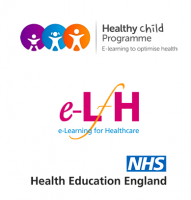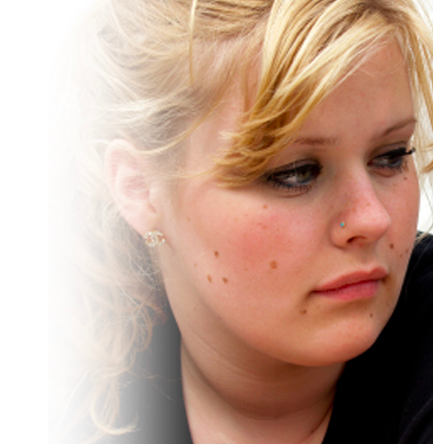Medical Assessment and Management of Obesity



This session will describe the key elements in the medical assessment and management of adolescent obesity and its relation to type 2 diabetes and insulin resistance. It will also cover the identification of secondary causes of obesity.
Learning Objectives
By the end of this session you will be able to:
- Outline the key elements of the medical assessment in adolescent obesity and judge which assessments are appropriate in different clinical scenarios
- Identify possible secondary causes of obesity and recognise how infrequently they arise in relation to lifestyle factors
- Describe the importance of obesity in relation to the increasing prevalence of type 2 diabetes and insulin resistance in adolescents
- Identify the key medications used in the treatment of adolescent obesity and when their use could be indicated
- Describe the role of surgical interventions and indications for this approach
- Appreciate the sensitivities around adolescent obesity and consider how this may impact on consultations
The place of investigations, as well as management with drugs and surgery in young people is still a matter of some discussion although the rapid increase in research carried out in recent years has started to provide some clarity. The session will focus on the medical assessment in the secondary care setting.
Before commencing this session you should complete the following AH session:
- AH session 12_004 Obesity In Young People (401-0059)
Helen is Senior Research Fellow at UCL Great Ormond Street Institute of Child Health and unit manager of the NIHR Policy Research Unit in Obesity. Her principal areas of interest are adult and childhood obesity, and developing and evaluating behaviour change interventions.
Research includes evaluating policies, promoting healthy pregnancies, mapping obesity prevention policies, understanding the impact of advertising and food labelling. She previously worked in the Department of Behavioural Science and Health, UCL as a Clinical Research Dietitian. She has worked on a number of obesity treatment and prevention evaluations, including for childhood obesity, Change4Life, the NCMP, an intervention to change eating and activity habits women living with obesity during pregnancy, and a weight management intervention for adults with intellectual disabilities.
She supervises a number of PhD students, runs undergraduate and masters level modules, and regularly presents and trains health professionals in behaviour change. She is a committee member of the BDA Obesity Specialist Group and Secretary for the charity Weight Concern.


Russell Viner is currently President of the Royal College of Paediatrics & Child Health (RCPCH), the leading voice for children and young people’s health in the UK. He is also Professor of Adolescent Health at the UCL Institute of Child Health in London, a paediatrician who sees young people with diabetes each week at University College Hospital and he directs the Department of Health Obesity Policy Research Unit.
Russell has a long history of leadership in national health policy, from involvement in the 2005 National Service Framework to helping ensure children and young people were central to the 2019 NHS Long Term Plan. He is currently Vice-Chair of the NHS England Children and Young People’s Transformation Board, responsible for strategic oversight of children’s health in England, and Chair of the Stakeholder Council for the Children’s Transformation Board. He also has significant ‘hands-on’ experience within the NHS, having been Clinical Director in a busy teaching hospital and clinical director for children and young people for the NHS across London, responsible for leading healthcare strategy for London’s 2 million children and young people.
Russell Viner was one of the founders of Adolescent Health in the UK. He set up the first Adolescent Medicine service in the UK and went on to become the UK's first professor of Adolescent Health, helping lead a new focus on adolescent healthcare in the UK and Europe. He was a founder of the UK Association for Young People’s Health (AYPH) and now serves as Patron. He has been Vice-President of the International Association for Adolescent Health. He has acted as an advisor on adolescent health and obesity for the Departments of Health and for Education in England and for the World Health Organisation and Unicef internationally. He is an Executive Committee member for the International Paediatric Association and will be President of the 2021 International Paediatric Congress.
His research focuses on population health, policy and health services for children and young people. Academically, he has published over 200 peer reviewed papers and is currently named on >£20 million in current research grants.
- Acquired Brain Injury course
- Posted By eIntegrity Healthcare e-Learning
- Posted Date: 2025-01-12
- Location:Online
- This session will outline the causes and effects of acquired brain injury (ABI) in childhood. It wil...
- Common or Serious Problems That are Easily Missed ...
- Posted By eIntegrity Healthcare e-Learning
- Posted Date: 2025-01-12
- Location:Online
- This session looks at easily missed medical and mental health problems in children and young people....
- The Child Not At School course
- Posted By eIntegrity Healthcare e-Learning
- Posted Date: 2025-01-12
- Location:Online
- An overview of common reasons why children may not be attending school and the role of the health pr...
- Sleep Difficulties course
- Posted By eIntegrity Healthcare e-Learning
- Posted Date: 2025-01-12
- Location:Online
- This session describes sleep in young people; what normal sleep is and what common sleep difficultie...
- Headaches course
- Posted By eIntegrity Healthcare e-Learning
- Posted Date: 2025-01-12
- Location:Online
- Headache is an important and common health problem for children that may lead to school absence and ...








